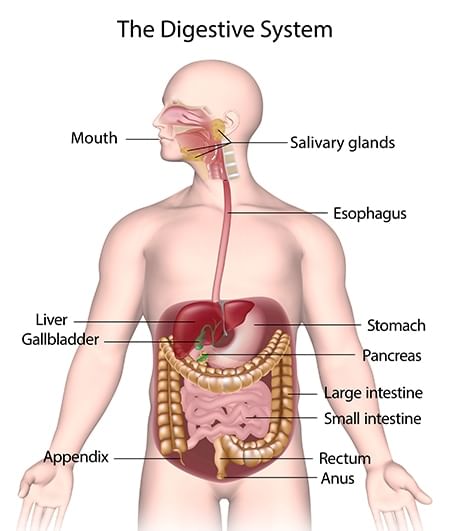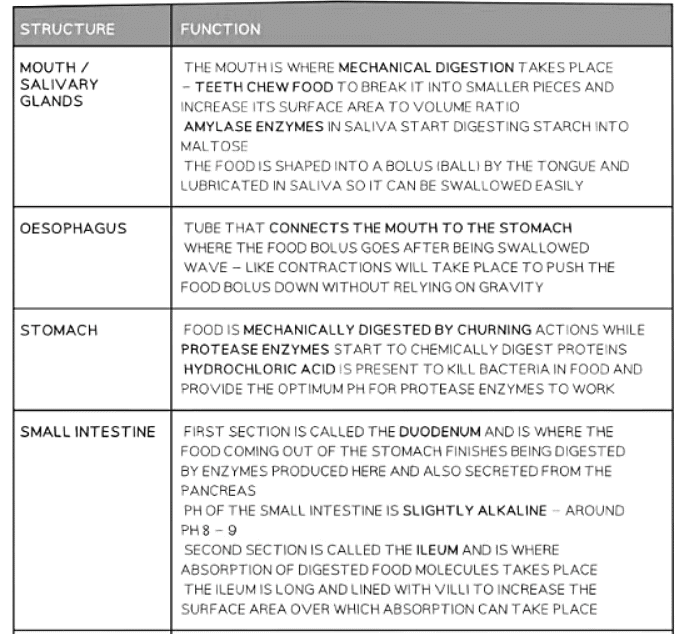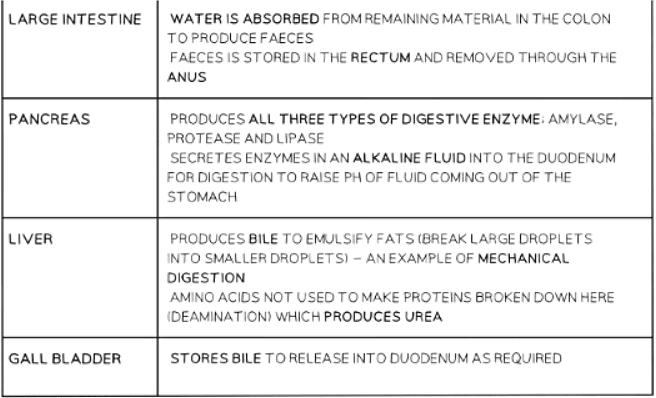Class 10 Exam > Class 10 Notes > Biology for GCSE/IGCSE > Digestive System
Digestive System | Biology for GCSE/IGCSE - Class 10 PDF Download
Identifying Organs of the Digestive System

Organs of the Digestive System: Function
Stages of food breakdown
Food enters the body and moves through 5 stages in the alimentary canal:
- Ingestion: The process of taking substances like food and drink into the body through the mouth.
- Mechanical Digestion: The breakdown of food into smaller pieces without changing the chemical composition of the food molecules. For example, chewing food in the mouth.
- Chemical Digestion: The breakdown of large, insoluble molecules into smaller, soluble molecules through chemical processes. An example is the action of enzymes in the stomach breaking down proteins.
- Absorption: The movement of small food molecules and ions through the intestinal wall into the bloodstream for distribution to cells and tissues. For instance, nutrients like glucose being absorbed into the blood from the small intestine.
- Assimilation: The process where digested food molecules are taken up by cells in the body to be used for energy or as building blocks for growth and repair. An example is amino acids from digested proteins being used to build muscle tissue.
- Egestion: The elimination of undigested or unabsorbed food material from the body in the form of feces through the anus. This includes indigestible parts of food like fiber.
Functions of the Digestive Organs Table


Question for Digestive SystemTry yourself: Which stage of food breakdown involves the movement of small food molecules and ions through the intestinal wall into the bloodstream?View Solution
The document Digestive System | Biology for GCSE/IGCSE - Class 10 is a part of the Class 10 Course Biology for GCSE/IGCSE.
All you need of Class 10 at this link: Class 10
|
101 videos|193 docs|33 tests
|
FAQs on Digestive System - Biology for GCSE/IGCSE - Class 10
| 1. What are the main organs of the digestive system? |  |
Ans. The main organs of the digestive system include the mouth, esophagus, stomach, small intestine, and large intestine.
| 2. What is the function of the stomach in the digestive system? |  |
Ans. The stomach is responsible for breaking down food into smaller pieces and mixing it with digestive juices to begin the process of digestion.
| 3. How does the small intestine contribute to the digestive process? |  |
Ans. The small intestine is where most of the digestion and absorption of nutrients takes place, as it is lined with villi that absorb nutrients into the bloodstream.
| 4. What role does the liver play in the digestive system? |  |
Ans. The liver produces bile, which helps to break down fats in the small intestine during digestion.
| 5. How does the large intestine contribute to the digestive process? |  |
Ans. The large intestine absorbs water and electrolytes from the remaining food matter, forming solid waste (feces) that is eventually excreted from the body.
Related Searches















